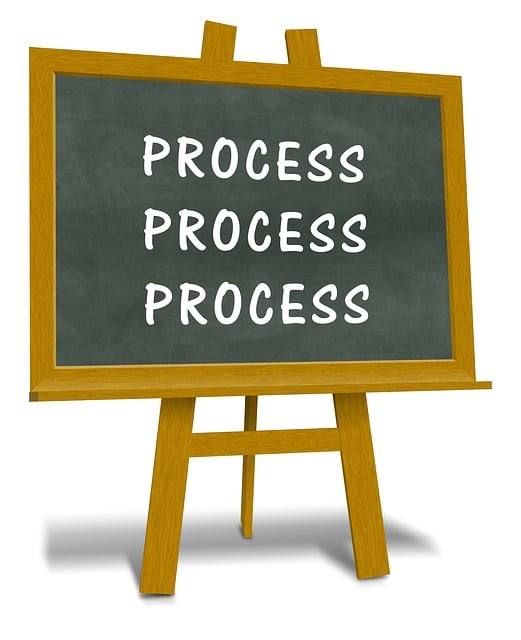Marketing automation for business scaling optimizes sales funnels by integrating tools for task automation, personalized interactions, and consumer behavior insights. Analysis of KPIs drives improvements, enhancing customer engagement through strategies like WhatsApp marketing and CRM tracking. Features like email campaigns, intelligent lead scoring, and AI chatbots support responsive, targeted sales approaches, boosting e-commerce growth. Analytics track key metrics for data-driven decision-making, refining strategies through continuous improvement, including campaign refinement and new marketing channels.
Automating your sales funnel stages is a game-changer for rapid business expansion. In today’s digital era, marketing automation tools enable you to streamline critical processes, from lead generation to conversion. This article explores how to understand and optimize key funnel stages, implement effective marketing automation strategies, and measure success for continuous growth. By leveraging automation, businesses can scale efficiently, saving time and resources while driving more sales.
- Understanding Sales Funnel Automation
- Identifying Critical Stages for Optimization
- Implementing Marketing Automation Tools
- Measuring Success and Iterating Strategies
Understanding Sales Funnel Automation

Sales Funnel Automation is a strategic approach to streamline and optimize each stage of your sales process, from lead generation to conversion and retention. By implementing marketing automation for business scaling, businesses can automate repetitive tasks, personalize customer interactions, and gain valuable insights into consumer behavior. This technology enables companies to move at a faster pace, catering to potential customers’ needs more effectively.
The process involves integrating various tools and platforms to create a seamless flow of data and actions. For instance, social media marketing automation can help schedule posts, engage with followers, and capture leads, while reputation management tools allow businesses to monitor and respond to online reviews and feedback. Automation ensures that your sales funnel operates efficiently, allowing you to focus on strategic decisions rather than manual, time-consuming tasks, ultimately driving rapid business expansion.
Identifying Critical Stages for Optimization

Identifying the critical stages of a sales funnel is a pivotal step in optimizing your business for rapid expansion. Using marketing automation tools, businesses can pinpoint where potential customers drop off and what actions lead to successful conversions. This process involves analyzing key performance indicators (KPIs) such as click-through rates, bounce rates, and time spent on landing pages to understand which parts of the funnel require attention. By focusing on these areas, companies can enhance customer engagement using strategies like WhatsApp marketing, a powerful tool for personalized communication, and optimize their website’s design and content for improved conversions.
For instance, implementing a robust CRM (Customer Relationship Management) system allows businesses to track customer interactions throughout the funnel, from initial contact to purchase and beyond. This data-driven approach enables marketers to automate tasks, personalize experiences, and create seamless transitions between stages. As a result, not only does marketing automation for business scaling streamline operations but it also ensures that every touchpoint contributes to building stronger customer relationships and driving revenue growth.
Implementing Marketing Automation Tools

Implementing marketing automation tools is a strategic move for any business aiming to scale efficiently. By automating various stages of the sales funnel, from lead generation to customer nurturing and conversion, companies can significantly enhance their operational speed and reach. Marketing automation platforms offer an array of features, such as personalized email campaigns, intelligent lead scoring, and seamless integration with Customer Relationship Management (CRM) systems, all of which contribute to a more responsive and targeted sales approach.
For online businesses, especially in the e-commerce sector, these tools are a game-changer. An AI chatbot, for instance, can handle customer inquiries around the clock, providing instant support and improving user experience. This not only boosts sales but also allows businesses to gather valuable data and insights into customer behavior, which can be leveraged to refine marketing strategies and personalize offers—a crucial aspect of successful business expansion.
Measuring Success and Iterating Strategies

Measuring success is a vital component of any automated sales funnel strategy for business expansion. By integrating analytics tools, companies can track key performance indicators (KPIs) such as conversion rates, customer acquisition costs, and lifetime value. These insights enable data-driven decisions that optimize the sales funnel stages and enhance overall marketing effectiveness. Regularly reviewing these metrics ensures strategies are aligned with business goals and allows for course correction when needed.
Iterating strategies based on measured outcomes is crucial for continuous improvement in marketing automation for business scaling. This involves refining email marketing campaigns, tweaking landing pages, and even pivoting to different text message marketing approaches that resonate better with the target audience. Embracing a dynamic approach leverages the insights gained from data analysis, fostering a responsive and adaptable sales funnel that keeps pace with evolving market trends and consumer behaviors.
Automating sales funnel stages is a powerful strategy for businesses aiming to scale rapidly. By identifying key optimization areas, implementing marketing automation tools, and continuously measuring success, companies can streamline their operations and capture more leads. Marketing automation for business scaling isn’t just about efficiency; it’s about leveraging technology to create a seamless customer journey, from initial interest to loyal advocacy. Embrace these strategies to stay ahead in today’s competitive market.
